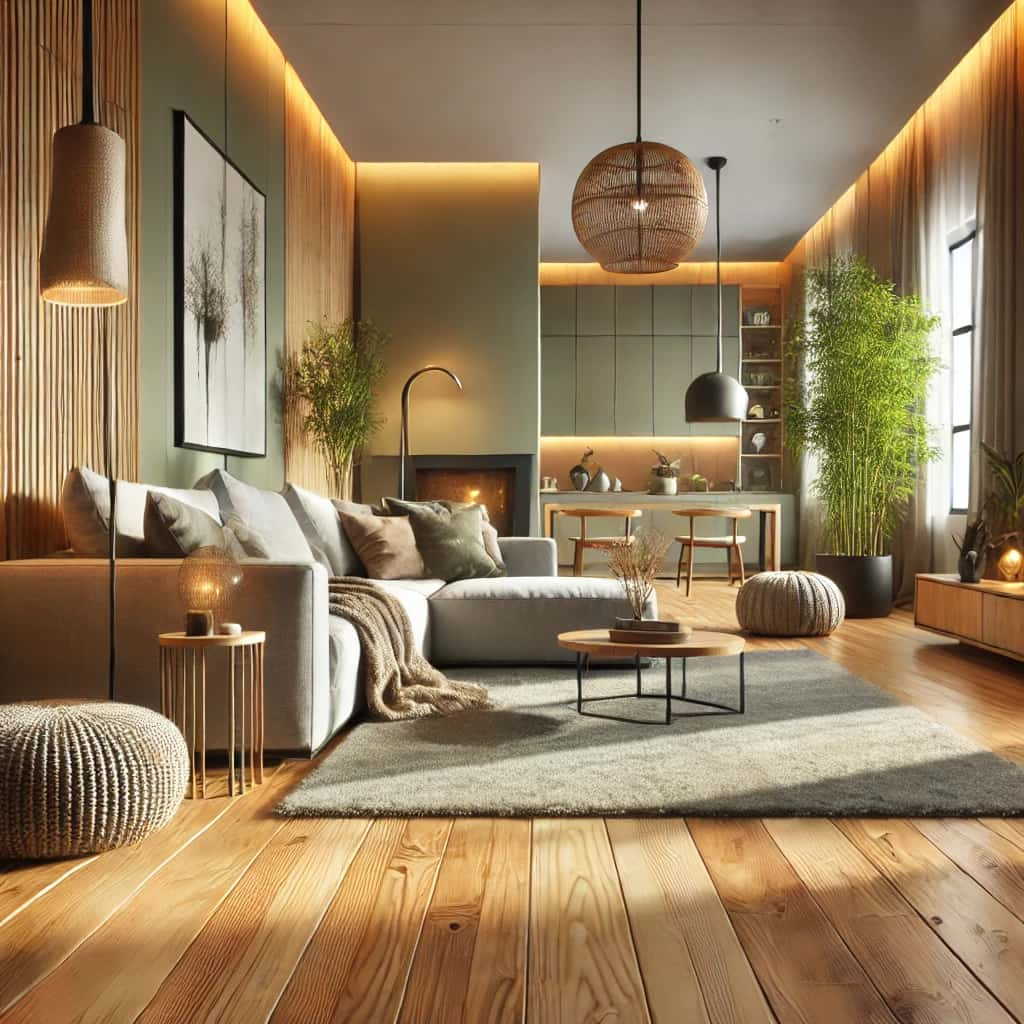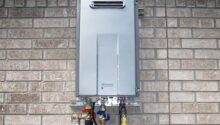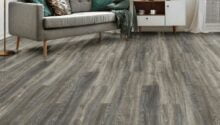Thinking about bamboo flooring? You’re in good company—it’s trendy for solid reasons! Bamboo flooring combines natural beauty with modern practicality, making it an attractive alternative to traditional hardwood. But just like any other material, bamboo has its quirks.
Before you decide to go all-in, let’s weigh the pros and cons together. I’ll give you a straightforward rundown so you can figure out if bamboo is the best fit for your space.

Why Bamboo Flooring Is So Popular: The Pros
Let’s start with the good stuff! Bamboo flooring has a lot going for it, and these are the reasons so many people are choosing it.
Eco-Friendly and Fast-Growing
First things first: bamboo is super eco-friendly. Unlike hardwood trees, which take 20 years or more to grow, bamboo matures in just 3–5 years. It’s a highly renewable resource, and that’s a big deal if you care about the planet. Choosing bamboo means you’re making a more sustainable choice without sacrificing style.
Easy Maintenance That Saves You Time
No one wants a floor that’s a pain to clean. Luckily, bamboo flooring is incredibly low-maintenance. A quick sweep or vacuum gets rid of dirt, and a damp mop or non-wax floor cleaner keeps it looking sharp. No specialized tools or intricate routines required—maintenance is straightforward and convenient.
Durability You Can Count On
Bamboo is tough. In fact, strand-woven bamboo flooring is harder than oak! If you go for uncarbonized bamboo that’s properly made, it can stand up to everyday wear and tear. This makes it a smart choice for busy households, especially in areas like living rooms or kitchens.
Modern Style with Timeless Versatility
Bamboo flooring has that sleek, natural look that’s so trendy right now. It can fit into modern or traditional spaces without missing a beat. Whether you’re going for cozy or contemporary vibes, bamboo has a way of elevating the overall feel of a room.
Affordable, High-Quality Flooring
Bamboo is budget-friendly. It costs about $5–$8 per square foot, which is comparable to hardwood flooring. Plus, since you can refinish bamboo, it’s an investment that lasts. Just be cautious about super-cheap options—they might be lower quality.

The Other Side of the Coin: The Cons of Bamboo Flooring
As much as I’d love to tell you bamboo is flawless, it does have its downsides. Here’s what you need to know before you commit.
Scratch Resistance: What You Need to Know
Even though bamboo is durable, it’s not scratch-proof. Pet claws, high heels, and even furniture can leave marks over time. If you’re the type to obsess over tiny imperfections, this might drive you a little nuts. Consider area rugs or furniture pads to help protect the surface.
Vulnerable to Humidity and Water Damage
Bamboo doesn’t handle extreme moisture or dryness well. In humid areas, it can swell; in dry climates, it might shrink and crack. And while it’s more water-resistant than hardwood, too much water can cause warping or even mold. A spilled glass of water? No big deal. A flood? Big trouble.
Environmental Considerations: Adhesives and VOCs
Here’s where things get a little tricky. While bamboo itself is sustainable, the adhesives used to make bamboo planks can emit VOCs (volatile organic compounds) over time. Not every brand is equal, so it’s worth looking for low-VOC options if indoor air quality matters to you.
Understanding Bamboo Quality: The Grading Gap
Unlike hardwood, bamboo doesn’t have a standardized grading system. That means quality can vary a lot between brands. To avoid disappointment, stick to reputable retailers and do your research.
| Feature | Pros | Cons |
|---|---|---|
| Maintenance | Easy to clean; sweep or vacuum, wipe with a damp cloth. | Requires care to avoid scratches from dirt or debris. |
| Eco-Friendliness | Rapidly renewable resource, grows in 3–5 years. | May involve toxic glues and VOC emissions during manufacturing. |
| Durability | Strand-woven bamboo is highly durable and harder than many woods. | Carbonized bamboo (darker colors) is softer and more prone to damage. |
| Water Resistance | More moisture-resistant than most hardwood floors. | Prolonged water exposure can lead to warping or mold growth. |
| Cost | Comparable to traditional hardwood flooring: $5–8 per sq. ft. | Low-cost options may be of inferior quality and less durable. |
| Style | Modern, natural look; complements most interiors. | Lacks the individuality and warmth of certain hardwoods. |
| Longevity | Can be sanded and refinished, extending its lifespan. | Poor installation or low-quality materials may reduce lifespan. |
| Humidity Impact | More stable than wood under normal conditions. | Excessive dryness or humidity can cause expansion, contraction, or cracking. |
| Aesthetic Appeal | Has a unique, wood-like texture. | May lack the warmth or charm of natural hardwood. |
Should You Choose Bamboo Flooring?
Now that we’ve covered the pros and cons, let’s figure out if bamboo is right for you.
Who Bamboo Flooring Is Perfect For
- Eco-conscious homeowners: If sustainability is important to you, bamboo is a win.
- Style enthusiasts: Its clean, natural look works beautifully in modern and traditional homes.
- Budget-minded renovators: Bamboo gives you high-end vibes without the high-end price.
When Bamboo Might Not Work
- Humid or super-dry climates: Extreme conditions can cause trouble.
- Homes with heavy wear and tear: If your space gets a lot of traffic or you have active pets, scratches could be an issue.

Making an Informed Decision: Balancing Pros and Cons
If you’re leaning toward bamboo flooring, there are ways to handle its quirks.
Tips for a Longer-Lasting Floor
- Use rugs or felt pads under furniture to reduce scratches.
- Keep indoor humidity levels consistent to prevent warping or cracking.
- Choose high-quality bamboo flooring with minimal VOC emissions.
What to Look For When Buying Bamboo Flooring
- Go for strand-woven bamboo—it’s the toughest option.
- Check for certifications or reviews to ensure the planks are well-made.
Conclusion: The Bottom Line on Bamboo Flooring
Bamboo flooring is a fantastic choice if you want something stylish, sustainable, and budget-friendly. It’s easy to maintain and durable enough for most households, but it does require a little extra care in certain conditions.
So, would I recommend it? Absolutely—but only if it fits your lifestyle. If you’re worried about scratches or live in a humid area, it might not be the best option. But for anyone who values eco-friendliness and affordability, bamboo flooring can be a real game-changer.
When choosing bamboo flooring, prioritize high-quality options with certifications, and don’t skip on proper care—it’s the key to longevity. With the right approach, bamboo flooring can bring both beauty and practicality to your home for years to come.





